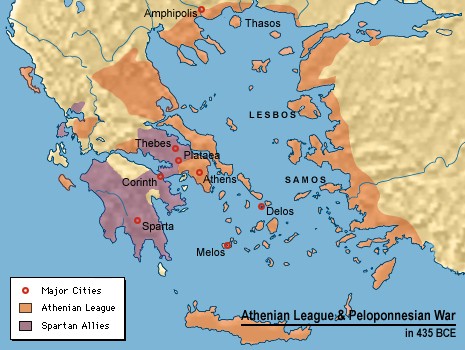The Theory of War  |
Clausewitz Trinity
Clausewitz
“If war is part of policy, policy will determine its character. As policy becomes more ambitious and vigorous, so will war, and this may reach the point where war attains its absolute form.” Clausewitz
“It can be taken as agreed that the aim of policy is to unify and reconcile all aspects of the internal administration as well as the spiritual values, and whatever else the moral philosopher may care to add. Policy, of course, is nothing in itself; it is simply the trustee for all the interests against other states.” Clausewitz
Clausewitz's Great Ideas
|
BROWN ARTICLE
- Material
- Ideational
- Derieved (Concepts, Support to friends and allies, Credibility and honor)
 LEVEE E MASSE AUGUST 1793
LEVEE E MASSE AUGUST 1793
Officer Counselor (State Department) Title " Ambassador " = Major General
 Ordinary citizens are loath to disrupt their lives, pay the cost and repair the destruction. Immanual Kant, Perpetual Peace, 1795. |
 The Roots of War as Institution
The Roots of War as Institution
Aug 29, 01 - 0912
- Aggsressiveness
- what is it, and is it " learned " or inherited ?
- Are there other causes of conflict between individuals?
- Social Roots of Conflict
- War as organization of violent action by states.
- Effects of socialization?
- Competition in modern society
What is peace?
 Cognitive Theory and Decision- making
Cognitive Theory and Decision- making
What is " cognitive dissonance " (Leon Festinger)?
consonance tend
Political Paranoia - " The psycho-politics of hatred "
par·a·noi·a ( p²r”…-noi“…) n. 1. A psychotic disorder characterized by delusions [delusion (´ÔÅÂÙ-©Ñ¹) n.¡ÒÃÅǧ, ¤ÇÒÁËŧÅÐàÁÍ, ¤ÇÒÁà¢éÒ㨼Դ] of persecution or grandeur, often strenuously defended with apparent logic and reason. 2. Extreme, irrational distrust of others. [Greek madness from paranoos demented para- beyond; See para- 1 nous, noos mind]
by Sam
 Groupthink
Groupthink
Conceptual Models and the Cuban Missile Crisis
Allision's Essence of Decision Seminar 11
 Rational Actor Model
Rational Actor Model
- The state as actor
- Government action reflects conscious choice
- Action is the result of rational choice including evaluation goals and objectives.
- Value-maximalizing choice
 Organizational Process Model
Organizational Process Model
- Governmental action as organizational output
- Relevance of organizational actors
- Factored problems and fractionalized power
- Parochial priorities and perceptions
- SOP
- Value-significing choice
 Bureaucratic Politics Model
Bureaucratic Politics Model
- No single strategic perception -- various conceptions of national, organizational, and personal goals
- The "pulling and hauling of politics "
- Relative power, rules of the game (action channels, the peace and structure of issues)
- Government action as political resultant [resultant (ÃÔÊÑÅ-á·ç¹·) n. adj.«Öè§à»ç¹¼Åresult (ÃÔ ÊÑÅ·-) n. vi. 1. ¼Å, ¡èͼÅ, à»ç¹¼Å 2. ŧàÍÂS. ensue,follow ; consequence]
 National Values and National Interests
National Values and National Interests
Aug 30, 2001
The Declaration of Independence
 American Values: Herson Article
American Values: Herson Article
Liberty
Equality
Achievement
Justice
Precedent
Rule of Law
Private property
Localism
Democracy
Other?
Universal Declaration of Human Rights
Principles of the Just War Available from <http://www.mtholyoke.edu/acad/intrel/pol116/justwar.htm>. Internet. Accessed 15 August 2001. 7 criteria
- A just war can only be waged as a last resort. All non-violent options must be exhausted before the use of force can be justified.
- A war is just only if it is waged by a legitimate authority. Even just causes cannot be served by actions taken by individuals or groups who do not constitute an authority sanctioned by whatever the society and outsiders to the society deem legitimate.
- A just war can only be fought to redress a wrong suffered. For example, self-defense against an armed attack is always considered to be a just cause (although the justice of the cause is not sufficient--see point #4). Further, a just war can only be fought with "right" intentions: the only permissable objective of a just war is to redress the injury.
- A war can only be just if it is fought with a reasonable chance of success. Deaths and injury incurred in a hopeless cause are not morally justifiable.
- The ulimate goal of a just war is to re-establish peace. More specifically, the peace established after the war must be preferable to the peace that would have prevailed if the war had not been fought.
- The violence used in the war must be proportional to the injury suffered. States are prohibited from using force not necessary to attain the limited objective of addressing the injury suffered.
- The weapons used in war must discriminate between combatants and non-combatants. Civilians are never permissable targets of war, and every effort must be taken to avoid killing civilians. The deaths of civilians are justified only if they are unavoidable victims of a deliberate attack on a military target.
 Thucydides  Pericles |
Thucydides - Poloponnesian War
Thucydides son of Olorus
The Pentecontaetia
The Peloponnesian War, 431 - 404 B.C.
The Peace of Nicias and the Sicillian Expedition, 421-413 The Ionian War, 413-404 Classic Problems in Strategic Analysis
Theater of War Arthens and Melos Civil War Uniform
|
 |
Multipolar world
1. Geography - Size, Location
|
1. Economic
|
Informational
What happen if someone hack the US systems ... we come so dependent on technology ... but we have to understand .. to support the national powers ...
- System of Power, bank, command and control, traffic control,
Source: (2) U.S. Army War College, Department of National Security and Strategy. Readings in War, National Security Policy, and Strategy. Carlisle Barracks: 2001. Vol. I: (Student Issue)
Fifty years ago this June, Secretary of State George Marshall offered unprecedented American assistance to the European countries that would together draft a blueprint for their economic recovery.
 “ We maintain, on the contrary, that war is simply a continuation of political intercourse, with the addition of other means. We deliberately use the phrase ‘with the addition of other means’ because we also want to make it clear that war in itself does not does suspend political intercourse or change it into something entirely different. ”
“ We maintain, on the contrary, that war is simply a continuation of political intercourse, with the addition of other means. We deliberately use the phrase ‘with the addition of other means’ because we also want to make it clear that war in itself does not does suspend political intercourse or change it into something entirely different. ”